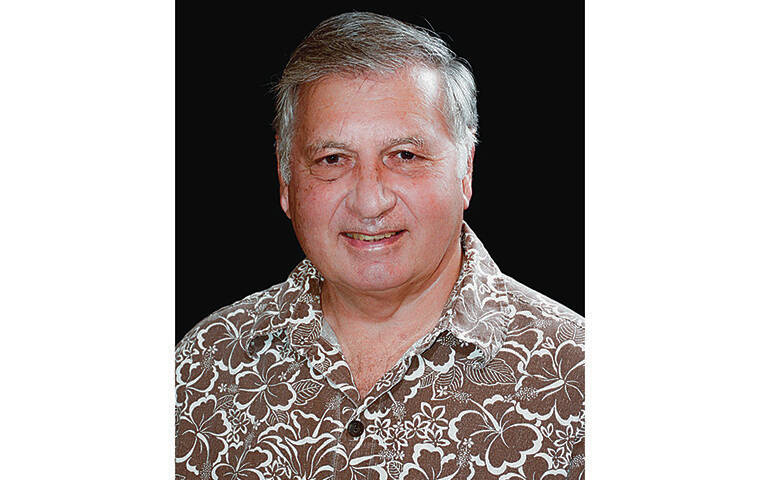During my life, a guiding metaphor has been the question about the glass half-filled with water: Is it half-full or half-empty? As an approach to life, this causes a lot of discussion: whether we have a positive outlook (half-full) or a negative one (half-empty).
When confronted with current challenges like climate change, the pandemic, inflation, political polarity, the war in Ukraine, the housing crisis and the safety of our neighborhoods, these questions are especially critical and relevant.
In 2004 when the reality of those experiencing houselessness finally caught my attention and I helped bring Family Promise to Oahu, I wondered about the program being a “Band-Aid” solution — not a permanent one. However, for the houseless, this was literally a lifesaving opportunity (80% of our guests transitioned to permanent housing).
Three portrayals illustrate why Family Promise, the Institute for Human Services and other programs and their services are so important, and much more than “band-aids.” The first week Christ Church Uniting in Kailua welcomed guests through Family Promise, a baby was born to houseless parents in Castle Hospital; without this program, the family would have been on the street. The next month, when another father was expressing his thanks, he confided that this was the first time his family slept unafraid. A few months later, as the families were leaving for the next host church, I heard a small girl ask, “are we going to our next home now?”
While obstacles to solving the housing crisis seem overwhelming (the economy, greed, mental health), homesharing offers tremendous opportunity at minimal cost; it is a proven concept with successful programs in more than 50 cities and 17 states since 1980, under guidance from the National Shared Housing Resource Center.
The basic idea of homesharing is very simple: connecting those who have a spare room with those who need one. Many homeowners are single with a wide variety of needs: simple chores around the house and yard, aid in shopping, rides to doctor appointments, companionship (isolation can be a huge concern for kupuna), and/or help with home expenses.
Those seeking homes vary in their ability to provide these needs. We carefully pair homesharers based on these preferences, to ensure successful matches. Applicants are professionally vetted, interviewed and matched for a trial period of sharing a home. If both parties feel it’s a good match, then the arrangement continues, as does our support.
When Chuck Larson, founder and CEO of Seagull Schools (early childhood education), retired a few years ago, he rejuvenated his nonprofit Hawai‘i Intergenerational Network (HIN) by suggesting it pilot a homesharing program. The pandemic made us pause for a while, but an infusion of funds, volunteers and additional staff have provided new energy. We’re currently compiling lists of homeowners and home seekers who are interested in this project.
While our homesharing project is only a partial solution, there are other programs that offer additional help, and together we can work our way out of the housing crisis. It will require a community effort, but I believe we can do it.
Reflecting on the glass of water metaphor has transformed my approach to social justice. We’ve been addressing the wrong question. Rather than debating whether it’s half-full or half-empty, we should be discerning how to refill the glass. If economists can solve the inflation problem and the cost of housing can be taken out of the equation for a healthy economy, the service agencies, churches and nonprofits can assist with the human need.
———
To learn more: For more about homesharing, see www.homesharinghawaii.org, send an email to homesharinghawaii@gmail.com, or call 808-308-5291.
The Rev. Dr. John R Heidel is a board member of the Hawai‘i Intergenerational Network, a retired minister and social justice activist.

